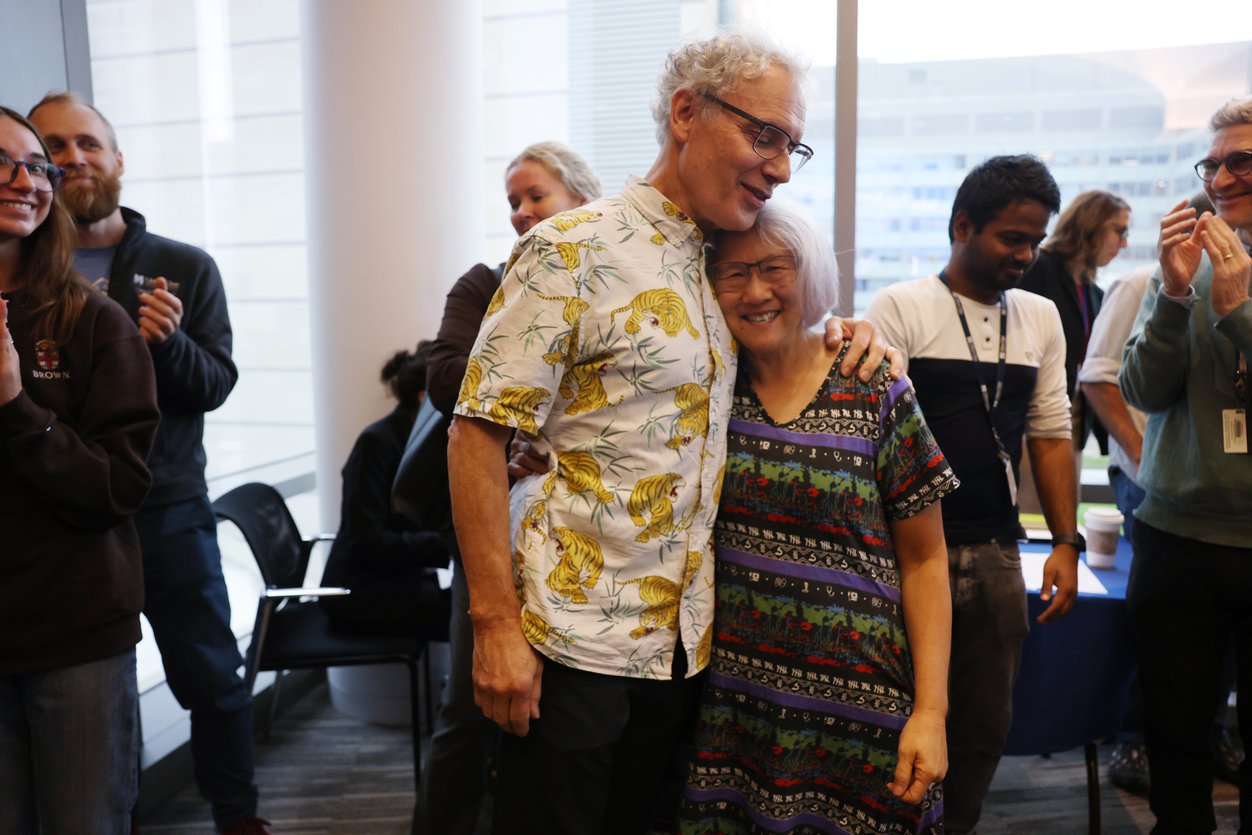Science
Portrait of a Nobel-winning marriage
 Jessica Rinaldi / The Boston Globe
Jessica Rinaldi / The Boston Globe
When this year's Nobel in medicine was awarded to Victor Ambros and Gary Ruvkun, many online expressed outrage that yet another woman named Rosalind had been overlooked for the prize: Ambros' wife, Rosalind "Candy" Lee, was first author on the paper that netted the Nobel.
But Lee doesn't see it that way. A part of her was relieved decades ago when her lab head didn't have the money to take her on as a graduate student, cutting her academic career short. At the time, a lot of the women in academia that Lee knew didn't have children, she said. "And I really wanted to have children."
Megan Molteni brings us the never-before-told story of Lee and Ambros' partnership, and the complicated relationship academic scientists of any gender have with family. If you read a single STAT story this entire year, make sure it's this one.
Gene Therapy
Teenage girl gets long-awaited Duchenne treatment
Sarah Jenssen is the rarest of the rare — a girl with Duchenne muscular dystrophy, which almost always afflicts boys, as STAT wrote about in 2019. She wasn't eligible to enroll in clinical trials for cutting-edge Duchenne therapies, but her family was elated when the FDA this year approved a gene therapy called Elevidys from Sarepta Therapeutics for nearly all patients, and didn't limit it to boys.
As STAT wrote in September, Sarah's insurance initially denied her the treatment, saying it was considered experimental for patients whose conditions had progressed to the point that they depended on wheelchairs — patients like Sarah, now 15.
After the family appealed, however, the insurer reversed the decision. Earlier this week, Sarah received a dose of Elevidys from her specialists at Vanderbilt. Sarah's mom, Deb, told STAT she knew of one other girl who had been treated so far.
The debate continues over the quality of evidence underlying Elevidys' approval, which patients should get it, and whether the FDA erred in approving it at all. But for the Jenssens, the hope is that the gene therapy can halt or at least delay any further progression of Sarah's disease and give her a longer life. As Deb told STAT in September, "Even though she's in a wheelchair, she can eat, she can use the bathroom by herself, she can get herself dressed in the morning. She's still a pretty independent person. But I think we're months away from losing all that." — Andrew Joseph
Public Health
U.S. life expectancy to dip below other high- and some middle-income countries
The Institute for Health Metrics and Evaluation at the University of Washington published new life expectancy projections in The Lancet yesterday, and the outlook for Americans is not good: Between 2022 to 2050, Americans' life expectancies will only increase from 78.3 to 80.4 years. The modest increase will drop the U.S. life expectancy ranking from 49th to 66th of 204 countries.
The biggest risk factors are familiar to all of us: high BMI, high blood pressure, diets high in sodium and processed meat, and alcohol intake. The researchers forecasted that reducing smoking and drug use would also improve mortality dramatically — by 2050, they calculated, the U.S. will have the highest drug-related mortality in the world, more than twice as high as the second-ranked country, Canada.


No comments